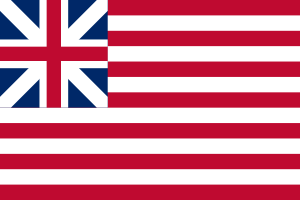This article by Matthew Beller on the Mises website tries to show how the US government can't "print its way out" of the present crisis.
The Federal Reserve controls the "monetary base" of physical currency and bank deposits, which represent only 15% of the money supply; the rest is bank lending. Currently, the banks are in a fright, so they are reducing credit, on which the economy depends. But if the Federal Reserve increases the monetary base, the banks' ability to multiply their deposits could lead to hyperinflation and the destruction of the dollar altogether. Hence the attempts to maintain confidence in the banking system instead, even if that means expensive financial support.
This isn't enough for the monetarists. They say the lending in the recent boom went on consumer spending, which encouraged producers to make too much of the wrong stuff and so the economy developed in the wrong way. The econo-Puritans say we should accept deflation because, although temporarily painful, it will rebalance the economy for a more sustainable long-term future.
However, nobody likes nasty medicine, so a political question is whether democracies will allow politicians to take timely corrective action. Past history suggests that we'll only vote for the treatment when we're half-dead, and even then, we'll curse the doctor afterwards.
My feeling is that this tendency to delay means that underneath the business cycle is a fatal linear trend, moving wealth and power to less democratic countries. When the world economy recovers, it may be on very different terms: for although (e.g.) China may suffer a setback as the Western consumer reduces spending, Chinese industrial capacity has been growing over recent years - not only the factories and tools, but equally importantly the skills base. At the upturn, the East will be well-placed to cater for reviving demand, while the West struggles to supply appropriately-skilled labour, and tries to buy back some of the industrial materials it had previously exported. And as the East industrialises, it will generate locally a greater proportion of world demand.
I cannot see how we can avoid becoming poorer, on average, than we have been in past decades, even if an elite in our society grows richer and more powerful (a phenomenon associated with more impoverished economies). We cannot rely on high-end production: China will address its quality issues, as Japan did in the 1950s. Nor can we be complacent about intellectual property rights, in a world where might makes right.
But China itself has deep problems - an growing and ageing population; an increasingly unbalanced demographic structure, thanks to attempts to limit family size; pollution; water shortgages; declining quality of farm land. The Chinese leadership faces a long-term challenge in dealing with unsatisfiable domestic expectations, which will tend to make it intransigent in its relations with foreign powers. The East-West contest may become characterized by desperation on both sides.
And so democracy in the West will come under pressure. In difficult times, people are thrown back on a network of social relationships and mutual expectations, but sudden, unreal access of wealth has tempted us to put our faith in the amassing of cash, and/or government intervention, to the detriment of agreed internal social control and support systems. When the system enters its failure phase, which Fischer
("The Great Wave") thinks may be starting, the social threads begin to snap: inflation, crime, family breakdown, war. The reification of the ties that bind us together tempts our government to maintain the social order through externalised means of surveillance and enforcement. Ultimately, the mismanagement of national budgets is a freedom issue.
 From Brad Setser's blog.
From Brad Setser's blog. From Brad Setser's blog.
From Brad Setser's blog.